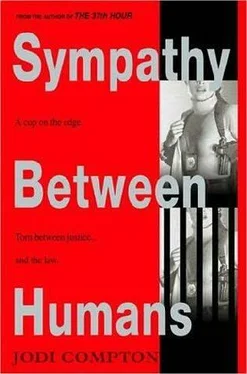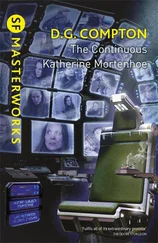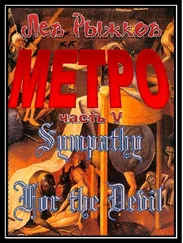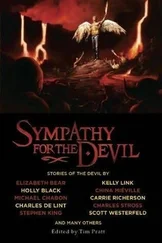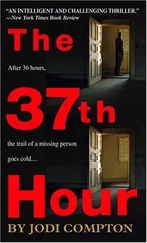In its low-key way, it was a story of extraordinary emotional largesse, but my radar for bullshit was quiet. I sensed he meant everything he said.
Then Aidan focused on something beyond me. I turned too, to see what it was. Marlinchen and her brothers were approaching. They were done visiting.
“Dad’s making a lot of progress,” Marlinchen said, sounding pleased, when she reached us. “He said my name. Well, the short version.”
Aidan said nothing.
“That’s great,” I managed, a second or two belatedly.
“I talked to Gray Diaz,”Genevieve said, over the long-distance wires.
It was Sunday, and I had taken a little time for myself, going home to clean out the mailbox and check my messages. The house had that stillness that you feel after an absence, the once-wet dishrag hardened to a stiff fossil over the faucet, papers lying museumlike where I’d left them. Also awaiting me was a bag of tomatoes on the back step, the gift of my neighbor Mrs. Muzio, and a message on the machine. From Genevieve.
“Well, we knew he’d want to talk to you,” I told her. “You’re my ex-partner and the person I went to visit after my alleged crime.”
“That’s not the point,” Genevieve said. “Sarah, this guy really thinks you did it.”
“We knew that too, didn’t we?”
“This is different,” she said. “I was a cop for nearly twenty years. I spent those years listening to cops talk about their cases, their suspects, and their gut feelings. I know when they’re just trying on theories for size, and I know when they’ve got religion. This guy has got religion, Sarah. He believes you killed Stewart.”
I hadn’t told her about the Nova and the tests the BCA was running for Diaz. Certainly I couldn’t say anything now; she’d only worry more.
“There’s nothing you can do about it,” I said.
“I could come back.”
“No,” I said firmly. She meant come back and confess. This was exactly what I didn’t want. “Think about what you’re offering to do. There’d be no turning back from it.”
She was quiet on the other end, and I knew she was internalizing the possibility of a life sentence. I pressed my advantage. “We’ve come this far, Gen. Too far to panic and tear it all down with our own hands.”
My neighbor’s scrawny Siamese cat stalked past the back door, looking for a handout. I stayed silent, letting my words sink in. Genevieve would see the logic in it. She’d always been logical, just as I’d always been intuitive.
Finally, Genevieve said, “When all this is over, you’re coming to see me, right?”
“Absolutely,” I said, relieved.
* * *
Whenwe’d hung up, I got up from my place on the floor, went into the kitchen, and opened a can of tuna, scraping it onto an old, chipped plate.
The examination of the car was probably the worst of Diaz’s investigation. What else was there for him to do, a search of the house? Diaz was a perceptive guy. Surely he’d recognize that I wasn’t the sort of person to keep a diary, and if I did, I wouldn’t write down explicitly incriminating things in it: Dear Diary, I sure am glad I got away with killing Royce Stewart, and torching his place, too! No, Diaz knew better.
I forced open the back screen door- it was really getting stiff- and set down the plate of tuna on the back step. From his prowls in the grass, the Siamese glared as though I were trying to poison him, but I knew he’d approach and eat after I was gone.
I didn’t go back into the house, but down into the basement, instead, where the little.25, which Genevieve’s sister had pressed on me, rested in the toolbox. I’d never used it; in fact, as far as I knew it had never been used in any crime. But I didn’t feel comfortable having it around. Regardless of how unlikely it was that Diaz would get a warrant for the house, it was time for the little gun to go. The river would take it off my hands. One short walk out to the bridge, and the gun would scud gently along the riverbed until it got hung up on some natural impediment, to lie unseen and untouched for some small eternity.
It was when I was back in the house, watching the Siamese eat in that both dainty and ravenous way cats do, that I realized I knew somebody who needed the.25 a little more than the waters of the Mississippi.
***
The dinnerhour was over, but the pleasant smell of cooking hung in the air of Cicero ’s hallway. The door at the end of the hall was open, and I waved at the shaven-headed boy standing in it as I approached. He made a half nod in return, chin thrust in the air.
I shifted the brown paper bag in my arms and knocked at Cicero ’s door. No one answered.
Could he be sleeping? It was too early for that. I knocked again.
“Shorty looking for ya,” the boy in the doorway said to someone inside. I turned and saw the boy moving aside, heard Cicero making his goodbyes to the other people he’d been visiting inside the apartment.
“I don’t think I’ve ever been called Shorty before,” I said when Cicero was at my side. He opened the door to his apartment, which was unlocked.
“It means ‘girlfriend,’ ” he said.
“I know what it means, ” I said, and left it at that. He couldn’t have known why it gave me a little chill to be called that, Royce Stewart’s nickname. “Anyway,” I said, “I brought you some things. From what you’d call the informal economy. You like tomatoes, right?”
“I love tomatoes,” Cicero said, his face slightly tipped to look down into the bag, “and these still have that great smell. Of the leaves, I mean.”
It was one of my favorite things, too, the sharp spice of tomato leaves, so different from the sweetness of the fruit. “I know,” I said.
Cicero went to put the bag on his kitchen counter. I used the time to dig into my shoulder bag. “This is the other thing,” I said, pulling the.25 from the bag; its cheap silver plating gleamed in the lamplight. Earlier, I’d cleaned and oiled and test-fired it, ensuring that it was in working condition.
“Sarah, is that real?” Cicero had turned to look.
“It’s real,” I said. “It comes from- a kind of an in-law,” I said. Genevieve was, after all, practically family to me.
“Is your husband’s whole family involved in crime?” Cicero asked me, only half kidding.
I didn’t answer him directly. “This gun isn’t registered to anyone that I know of, and if any crimes were committed with it, they were long ago and over state lines,” I said. “I was going to get rid of it, but you need it more.”
“You think I need it?” Cicero said. I wasn’t sure I’d ever seen him surprised before. There really was a first time for everything. “What would I need a gun for?”
“You operate a cash business,” I told him, “in a public housing building.”
“Thanks for the thought, but no,” Cicero said. “I don’t like guns.”
“You don’t have to like it,” I said. “But in a place like this-”
“In case you weren’t aware,” Cicero interrupted, “many people who live in public housing are working parents. Or senior citizens. The rate of church attendance-”
“I get your point,” I said, setting the gun down on the table, into a kind of psychological escrow between us. “It doesn’t really matter where you live. You keep cash in your home, and people know that. That’s a risk in any neighborhood.”
“No,” Cicero said. “People here look out for each other, and they respect what I do. I’ve helped many of them.” He saw that I was about to speak again and raised his hands. “I understand the point you’re making. I do. But I won’t arm myself against my own patients.”
Читать дальше
